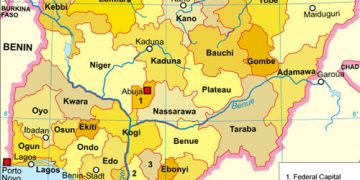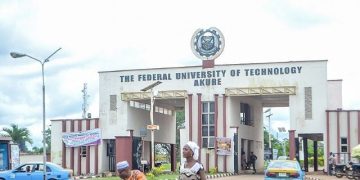The Nigerian authorities’ persistent failure to address the repeated abductions of school children and teachers in several parts of northern Nigeria is putting the education of a generation of children at risk, said Amnesty International, following the indefinite closure of 20,468 schools across seven states in the wake of last week’s mass abduction in Niger state.
Since the abduction of the Chibok school girls in April 2014, at least 15 mass abductions of school children have been documented by Amnesty International, highlighting the authorities’ consistent failure to protect children and teachers from attacks and guarantee access to education. Authorities continue to fail to ensure justice and accountability for all the previous mass abductions.
“What we are witnessing right now in the northern part of Nigeria is an assault on childhood and an utter failure to guarantee the safety and security of school children and teachers. It is not only school children that are unsafe. Hundreds of towns and villages have for many years endured frequent attacks by gunmen,” said Isa Sanusi Director Amnesty International Nigeria.
“The Nigerian authorities are grossly failing in their constitutional and international human rights obligations to protect lives.
“This failure by the authorities to promote and ensure the security and safety of the population constitutes a serious breach of their human rights obligations, including under the Nigerian Constitution and the African Charter on Human and Peoples’ Rights to which Nigeria is a state party.
“Many abducted children and teachers are never released by their abductors. The possibility of abduction is forcing millions of children to abandon education, while underaged girls are having their education terminated and forced into marriage as a means of avoiding abduction at school. This is a devastating blow to years of efforts to boost enrollment in schools in the educationally disadvantaged parts of northern Nigeria.”
Lack of Accountability
After each school abduction, authorities never fulfill promises to investigate the incidents and bring the perpetrators to justice. Victims and their families continue to be denied access to justice and effective remedies. This recurring lack of transparency and accountability has also fueled allegations that authorities are making covert ransom payments to rescue school children from their abductors.
Immediately after the abduction of over 300 children and teachers from St. Mary’s School in Papiri Niger state on 21 November, the state government alleged that the school authorities had ignored an earlier security alert that would have prevented the abductions. However, the owners of the school, the Catholic Archdiocese of Kontagora, reputed these claims and challenged the state government to present any evidence of the security alert.
Amnesty International’s investigations of both the Chibok and Dapchi abductions showed that they succeeded because of security lapses. More recently, Amnesty International’s research showed that the abduction of 25 schoolgirls from Maga in Kebbi state on 17 November happened despite earlier security intelligence that the school would be targeted.
State governments of Bauchi, Benue, Kwara, Plateau, Niger, Benue, Yobe and Katsina have closed schools in an effort to prevent mass abductions. While this measure has a short-term benefit, it has a long-term negative impact on children’s education. Moreover, Amnesty International’s investigation showed that schools closed in 2021 after a spate of mass school abductions were never reopened, and the children attending these schools were not provided with alternative education.
“Many schools that are closed to prevent abductions remain closed indefinitely because security is not improving in affected areas. As a result, thousands of children are forced into working to support their families. Even before the current wave of school abductions, the Nigerian authorities were not adequately or effectively upholding and ensuring the right to education,” said Isa Sanusi
Estimates of the number of abductions by gunmen and armed groups vary and some of the commonly cited figures vastly understate the scale of the problem.
“Nigeria has ratified the principal human rights treaties guaranteeing the right to education, including the Convention on the Rights of the Child (CRC) and the African Charter on the Rights and Welfare of the Child (ACRWC). The authorities must live up to their legal obligations to ensure rights to education, to the highest attainable standard of health, to protection from physical or mental violence, and to protection from torture and other ill-treatment,” said Isa Sanusi.
“Nigerian authorities must invest more in education and take concrete and effective measures to reduce the barriers that deny many children access to school – including ending violent attacks on rural communities.
“Authorities must promptly, thoroughly, independently, impartially, transparently and effectively investigate all incidents of mass school abductions since April 2014 and bring to justice suspected perpetrators.
“Authorities must ensure access to justice and effective to victims and their families. They must fulfill their human rights obligations to use ‘maximum available resources’ to ensure the right to education and that children remain in schools.”







































